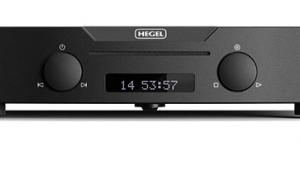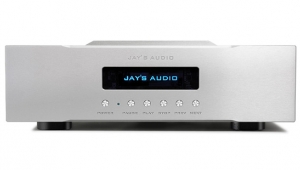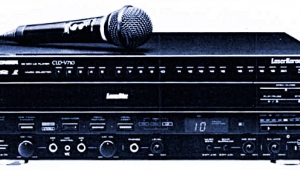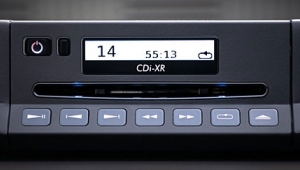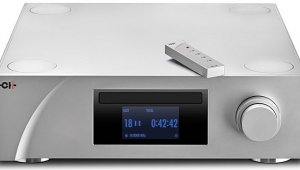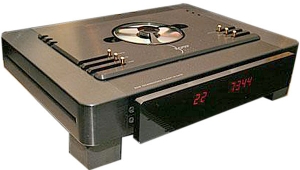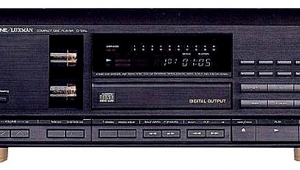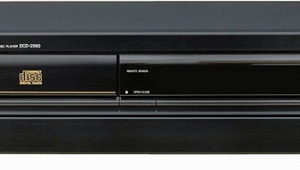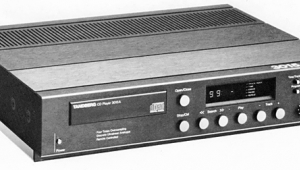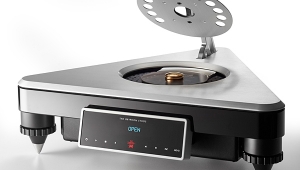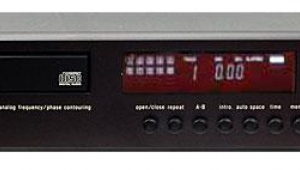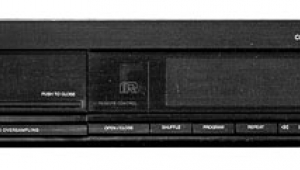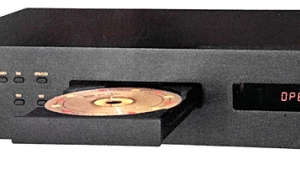| Columns Retired Columns & Blogs |
Meridian 808.2/808i.2 Signature Reference CD player/preamplifier Page 3
For my first comparison I used Robert Silverman's performance of Liszt's Liebestraum, from Editor's Choice (CD, Stereophile STPH015-2). The result wasn't what I was expecting from my prior auditioning of this track with the CD played in the Meridian, in that the piano now sounded a touch more bright and not as palpable. The Ayre was clearly preferable. I checked the setting of the dCS. Ah...I'd forgotten to change the 972's output frequency from 96kHz to 44.1kHz, meaning that the dCS was upsampling the CD data before sending it to the Meridian, an additional variable that worked against the English player. I tried again.
Now it was not so clear-cut. After many A/B comparisons, if I had to swear, the Meridian produced a better sense of the piano in the space where I had made the recording, the Ayre a more robust midrange that pushed the piano image forward a little.
Next up were the three Gershwin Preludes from Editor's Choice, arranged for piano and chamber orchestra. Again the piano image was set a little farther back in the acoustic via the Meridian. But the percussion instruments—particularly the snare drum in the second Prelude and the tambourine in the third—sounded better defined through the 808i.2. By contrast, the Ayre tended to run the tambourine jingles into one another a little more.
Ultimately, as much as I have appreciated the Ayre's playback of CDs, it was outpointed by the Meridian. Recorded soundstages were more expansive, yet without individual images within those stages becoming bloated or more diffuse. The relationships between the instruments and the surrounding space on Jerome Harris's arrangement of Duke Ellington's "The Mooche," also on Editor's Choice, sounded slightly blurred through the Ayre, slightly better delineated via the Meridian—not an enormous difference, but still an important one, I feel. In the words of the inimitable Sam Tellig channeling Gertude Stein, with the Meridian, there was more "there" there.
At the 2009 Consumer Electronics Show last January, Ayre announced that they were offering an upgrade service by which both their C-5xe and CX7-e players could be retrofitted with minimum-phase digital reconstruction filters, one of which is similar to Meridian's apodizing filter. I'm sending my sample of the C-5xe back to the factory for the upgrade, so a rematch with the 808i.2 lies in the future.
My final comparison was intended to provide an answer to this question: How does the CD playback of the Meridian 808i.2, with its apodizing filter, stand up against genuine high-resolution recordings played through the Ayre? I burned the 24-bit/88.2kHz two-channel masters of two of my recent recordings—Attention Screen's Live at Merkin Hall (Stereophile STPH018-2) and Cantus's While You Are Alive (Cantus CTS-1208)—onto DVD-Audio using Minnetonka Software's Discwelder Bronze program, then played them back on the Ayre. The CD versions were played on the Meridian with as close to perfect time synchronization as I could manage. Again, levels were matched to within 0.1dB at 1kHz.
Having lived with these recordings for months and played the files through conventional D/A converters such as the Benchmark DAC1 and the Logitech Transporter, I'm convinced that, as good as the CDs sound, the hi-rez masters go that essential step further in soundstage solidity and image palpability. So it was with some surprise that I found it very difficult—even impossible, at first—to hear any difference between the two players: "Red Book" audio through the Meridian didn't sound appreciably different from hi-rez through the Ayre. Tonally, spatially, the presentations were virtually identical. In the end, there was a difference, though not one I was expecting: The hi-rez playback had slightly better defined and slightly more extended low- and mid-bass with the bass guitar, tom toms, and kick drum on Live at Merkin Hall, which in turn led to a very slightly less congested lower midrange.
Ultimately, my preference was still for the hi-rez versions of the music, but it was a closer-run thing than I had expected.
Downsides?
Only one: Sometimes, when I'd accessed a track via the Meridian remote's numeric keypad, the player would clip the beginning of the first note with some discs, though not others. This suggests that the player is a little slow to lift its mute when it finds the track-start marker in the CD's PQ subcode. When I master CDs, I place the Track Start Marker about a quarter of a second before the beginning of the first note, to allow players time to unmute. Other engineers leave as little as a tenth of a second, which can catch out tardier players. This becomes irrelevant when a CD is played from beginning to end, of course.
Summing up
The Meridian 808i.2 Signature Reference didn't beat me over the head with its quality. Rather, as its English heritage might suggest, it let me discover for myself how wonderful its playback of CDs could be. I doubt this sonic excellence is due to the new apodizing filter alone—every other aspect of the player's performance has also to be first-rate, which it does appear to be. Without any hyperbole, therefore, I can say that the Meridian 808i.2 is the finest-sounding CD player I have yet heard. Yes, it is expensive, even without the preamplifier option, but it will allow its owners to rediscover the joys in their collection of music.
- Log in or register to post comments
